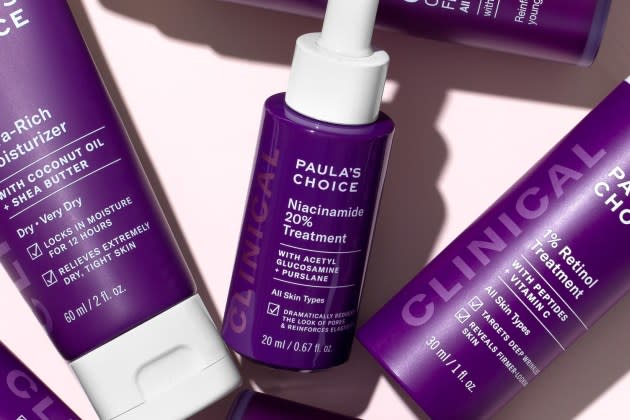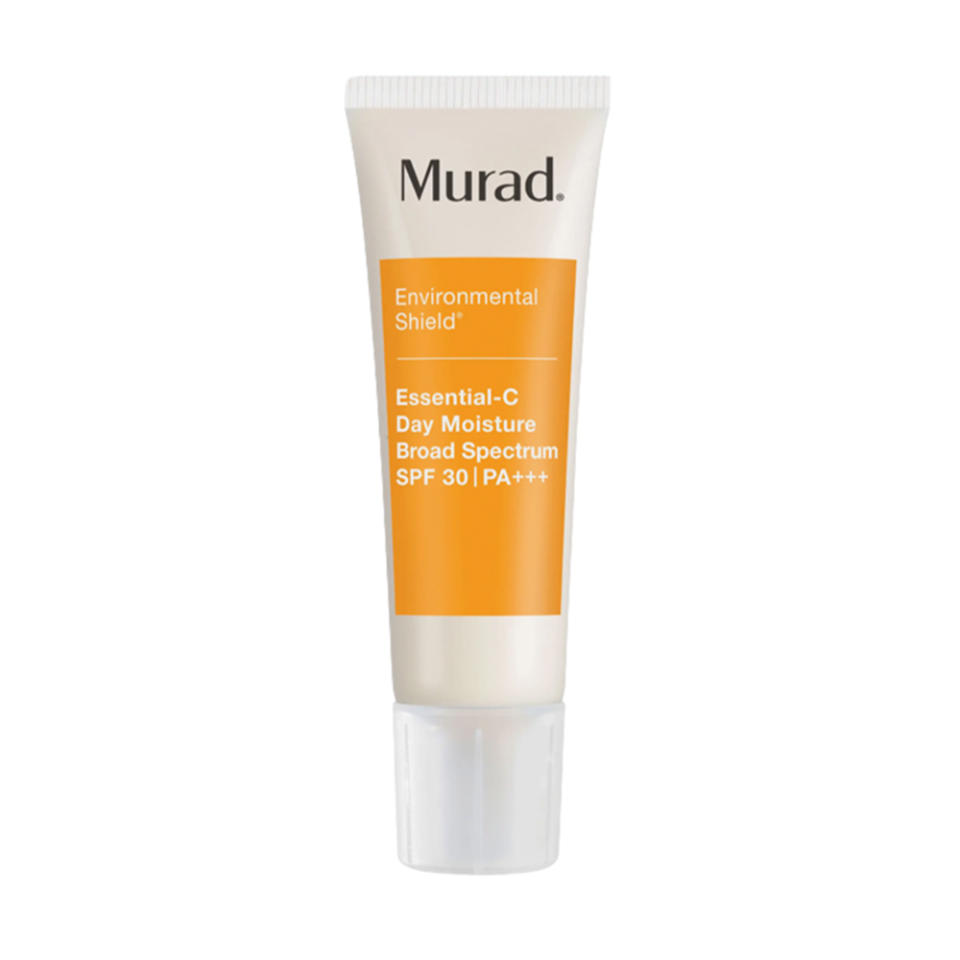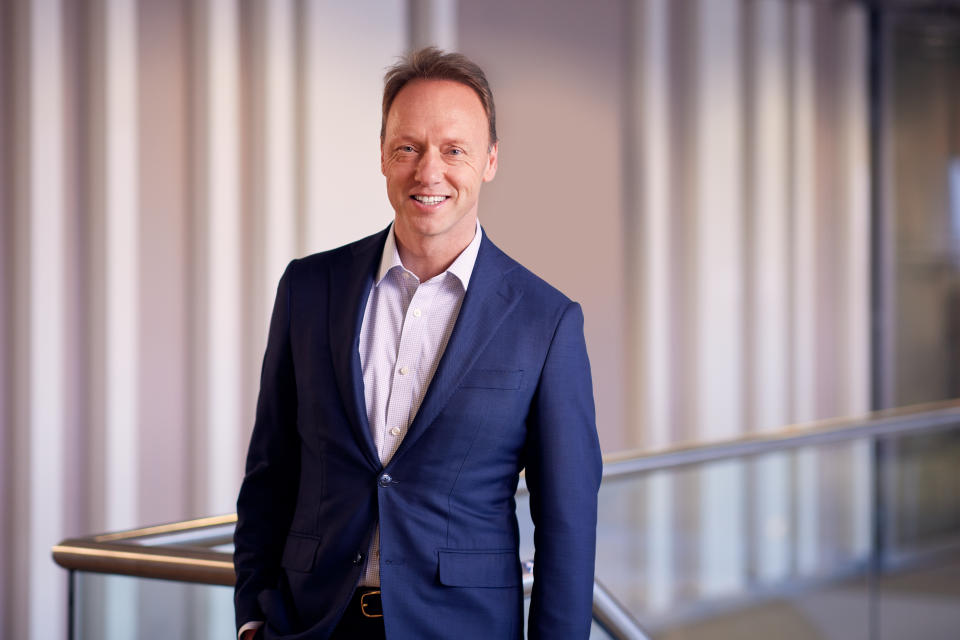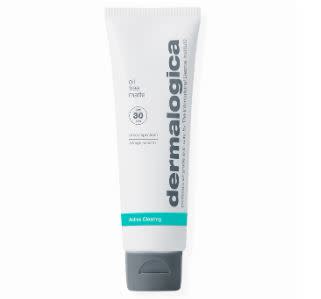Unilever CEO to Simplify, Focus on Top 30 ‘Power Brands’
- Oops!Something went wrong.Please try again later.

LONDON — More disposals could be in the pipeline at Unilever as it prepares to focus on the top 30 high-growth brands in its portfolio, part of an “action plan” unveiled by the company’s new chief executive officer Hein Schumacher during a third-quarter presentation to analysts on Thursday.
Schumacher, who stepped into the role on July 1, said in a slick video that he wants to simplify and streamline the business and focus on the top 30 “power brands,” which are growing faster than the company average and which generate more than 70 percent of turnover.
More from WWD
Annabel's Prepares for Halloween With Venetian Carnival Facade
Lily James Gives Cold Shoulder in Emilia Wickstead Dress at 'Lyonesse' Press Night Party
Unilever Q3 Growth Declines Due to Currency, Sells Dollar Shave Club
In beauty, those brands include Dove, Dermalogica, Paula’s Choice and Pond’s.
Schumacher laid out his new strategy shortly after Unilever posted revenue of 15.2 billion euros in the first three months, with 5.2 percent underlying sales growth due partly to higher prices, and a 3.8 percent reported decline from currency headwinds.
Alongside the results, the company revealed the sale of Dollar Shave Club to Nexus Capital Management LP, a U.S.-based private equity firm. Unilever will retain a 35 percent minority stake in the maker of razors, electric trimmers and men’s grooming products.
We need to run the Unilever businesses better. The synergies are there to do it and there is a value creation opportunity to explore.”
Hein Schumacher, Unilever CEO
Unilever, which acquired Dollar Shave Club in 2016, said the sale marked a further step in its “journey to transition our portfolio toward core strategic growth areas.” Schumacher made clear in his presentation that Dollar Shave’s growth had fallen short of expectations.
“Not all of our acquisitions have delivered, and we’ve made some unsuccessful attempts to move away from our core,” said Schumacher, who began his career in Unilever’s financial department and who was most recently CEO of Royal FrieslandCampina, an international dairy and nutrition business.
Schumacher added there is “more pruning of the portfolio to be done,” with no “major or transformational” purchases on the horizon. Instead, Unilever will be looking for “value-accretive” bolt-on acquisitions, and plans to set a “higher, clearer” bar for the companies it buys.
It’s no surprise that Schumacher wants Unilever to lay low on the M&A front. His predecessor Alan Jope resigned last September after three failed attempts to purchase the consumer arm of GlaxoSmithKline, which was eventually spun off, renamed, and listed on the London Stock Exchange.
The high price that Jope was willing to pay for the division — 50 billion pounds — irked shareholders, tarnished his image, and sent Unilever’s shares plummeting. Not long after that, activist investor Nelson Peltz arrived and elbowed his way onto the board as a non-executive director.

Although Schumacher declined to give any details about future disposals, certain brands are in the firing line. During the presentation, Unilever highlighted that skin care brands Murad, Carver Korea, Quala and Smarty Pants vitamins were performing “below expectations.”
By contrast, Dermalogica, Tatcha, Paula’s Choice, Nutrafol, Liquid IV, Olly vitamins and Sundial Brands, a New York-based beauty and personal care products company, were outstripping expectations.
In his presentation Schumacher also said it was time to “simplify and re-prioritize,” and to focus on the biggest brands and opportunities. He believes that Unilever products should have a superior edge, with strategies executed “brilliantly.”
His mantra is “fewer things done better.”
After a whistle stop tour of Unilever’s international markets, laboratories, and suppliers over the past months, Schumacher concluded that resources have been spread too thinly and too many smaller brands and projects have been competing for attention. Hence his desire to focus on the “power brands.”
He also wants to see innovation — new formulations based on biotechnology, renewable packaging, and other sustainability solutions — shared across the brands. The brands’ focus should be on “new benefits,” rather than relaunches.
“We need to leverage science and technology across the brands, and focus on a smaller number of bigger opportunities,” he said.
In order to fund those ambitions, Schumacher wants to raise capital expenditure from 2.4 percent of turnover to more than 3 percent. His plan is to “build back gross margin” and put the money behind the top brands.
There are opportunities to streamline the supply chain, too. He’s looking at how costs can be shared across the company and to cut down on the distances that certain products have to travel between suppliers and retail outlets.

“We need to run the Unilever businesses better. The synergies are there to do it and there is a value creation opportunity to explore,” he said.
Even sustainability plans will be reset to ensure they are shorter-term and make sense for the individual brands. Once again, Schumacher said the company was spreading itself thinly with too many long-term goals that will only come to fruition “after we’re all gone.”
Instead he wants the group, and the individual brands, to set shorter-term goals, share knowledge, and embed sustainability into their strategies and brand propositions.
“We should be focusing on industry-leading efforts in climate, nature, plastics, and people’s livelihoods,” he said. “There should be no more ultra-longterm goals, but real, steady, meaningful progress towards shorter-term ones that are simpler, deeper and have maximum impact.”
Schumacher also unveiled a raft of management changes, foremost the promotion of Fernando Fernandez to the role of chief financial officer.
Fernandez is president of Unilever’s Beauty & Wellbeing business group, and will succeed Graeme Pitkethly, who revealed his decision to retire from the company earlier this year.
In view of Unilever’s past inability to turn such good intentions into superior financial performance, a lot depends on Hein’s ability to execute…”
James Edwardes Jones, RBC Capital Markets
Priya Nair, currently chief marketing officer of Beauty & Wellbeing, will succeed Fernandez as president of the division. Esi Eggleston Bracey, general manager Personal Care North America and head of country, U.S., has been named to the new role of chief growth and marketing officer.
Schumacher’s plan didn’t wow the markets. The share price closed down 2.6 percent at 39.09 pounds with RBC Capital Markets one of the more vocal critics.
“We’re underwhelmed,” wrote James Edwardes Jones of RBC Capital Markets in a report following Schumacher’s presentation.
“Focus on fewer, bigger brands and innovations, more competitive buying…this is consumer staples 101. A lot of what we heard reminds us of the sort of thing that Unilever has been saying for as long as we can remember.
“That’s not to say it’s wrong; on the contrary, we think it makes complete sense. But in view of Unilever’s past inability to turn such good intentions into superior financial performance, a lot depends on Hein’s ability to execute, and take others along with him,” Edwardes Jones added.
The markets were already lukewarm on Unilever’s third quarter results, with Jefferies’ Molly Wylenzek calling out “a volume miss and further drop in market share growth.”
Beauty was a top performer in the period.
The Beauty & Wellbeing division accounted for 20 percent of turnover and grew 7.4 percent on an underlying basis to 3.1 billion euros, outstripping overall growth. Turnover was down 4.9 percent on a reported basis.

Drivers included Dermalogica, Tatcha, Hourglass, Nutrafol and Liquid IV, which recently launched a range extension into sugar-free formulas and hydration solutions for children.
Unilever left unchanged its outlook for the full financial year, with underlying sales growth in excess of 5 percent, and underlying price growth continuing to moderate due to a decrease in cost inflation.
Unilever noted that cost inflation has been moderating throughout the year and said its expectation for net material inflation remains unchanged at around 2 billion euros.
The company said it will deliver a “modest improvement” in underlying operating margin for the full year, reflecting higher gross margin and increased investment behind its brands announcement.
In a separate report RBC Capital Markets described Schumacher’s plan to deliver, on a multiyear basis, 3 to 5 percent organic sales growth and modest margin expansion as “realistic — at least for now. Previously, incoming CEOs at Unilever have tended to over-promise on growth,” he wrote.
Best of WWD

